The Works of Robert S. Candlish (15 vols.)
Digital Logos Edition
Overview
The Works of Robert S. Candlish contains 15 volumes of Candlish’s most important works—volumes that cover prayer, the fatherhood of God, atonement, the trinity, the Sabbath, and much more. The Two Great Commandments is Candlish’s classic treatise of Matthew 22:35–40. Three volumes deal with the controversy surrounding the relationship between the Church of Scotland’s independence and the civil law of Scotland. In Reason and Revelation, Robert S. Candlish defends the authority, inspiration, and infallibility of the Bible. Like the popular Life in a Risen Saviour, these works are written in Candlish’s easily readable style and devout sense of purpose.
Robert S. Candlish was one of Scotland’s most notable preachers and teachers of the 19th century. He was a leading voice in the Great Disruption of 1843, in which more than 400 ministers broke away from the Church of Scotland to form the Free Church of Scotland. His reverence for the Word and strong Reformed theology made his sermons and books highly popular, and they sealed his legacy as a master preacher and skilled exegete.
With the Logos Bible Software edition all Scripture passages in the Works of Robert S. Candlish (15 vols.) are tagged and appear on mouseover. This makes these resources more powerful and easier to access than ever before for scholarly work or personal Bible study. With the advanced search features of Logos Bible Software, you can perform powerful searches by topic or Scripture reference—finding, for example, every mention of "atonement" or "Romans 3:25–26."

- 15 classic works by revered Scottish preacher Robert S. Candlish
- Includes the highly popular The Two Great Commandments
- Completely searchable by topic or Scripture reference
A man hardly needs anything beyond Candlish. He is devout, candid, prudent, and forcible.
- Title: The Works of Robert S. Candlish
- Volumes: 15
- Pages: 3,809
- The Fatherhood of God
- The Prayer of a Broken Heart: Being an Exposition of the Fifty-first Psalm
- The Duty of Laying By a Stated Proportion of Our Income
- Reason and Revelation
- Scripture Characters
- Sermons by the Late Robert S. Candlish
- The Atonement, Its Efficacy and Extent
- The Two Great Commandments
- Man’s Right to the Sabbath: A Sermon
- Remarks on the Dean of Faculty’s Letter to the Lord Chancellor
- Narrative Relating to Certain Recent Negotiations for the Settlement of the Scottish Church Question
- Summary of the Question Respecting the Church of Scotland
- Examination of Mr. Maurice’s Theological Essays
- Memorials of Robert Smith Candlish
- Christianity and Recent Speculations: Six Lectures by Ministers of the Free Church
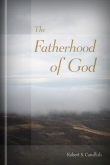
The lectures contained in The Fatherhood of God were first delivered in 1864 as part of the Cunningham Lecture Series in Edinburgh, Scotland. Candlish revised the lectures for book form, adding detailed notes at the end of each lecture. The following lectures are included:
- "The Original Relation of Man to God"
- "The Fatherhood of God, as Manifested in the Person of Christ, the Incarnate Word"
- "The Fatherhood of God, as Revealed and Known Before the Incarnation"
- "The Teaching of Our Lord on His Own and His Brethren’s Sonship"
- "The Manner of Entrance into the Relation; Adoption, as Connected with Regeneration and Justification"
- "The Privileges and Obligations of Sonship"
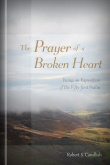
In this in-depth exploration of the fifty-first Psalm, Robert S. Candlish divides the psalm into four parts: the confession of sin, the supplication for full cleansing, its purpose of reparation, and its present sacrifice and final prospect.
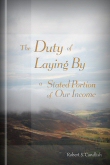
This sermon on 2 Corinthians 8–9 was originally delivered in London, Edinburgh, and Fisherwick Place, Belfast, in 1863. In it, Candlish speaks about tithing to the church as encouraged by Paul’s pleas.
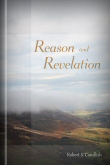
In Reason and Revelation, Robert S. Candlish defends the authority, inspiration, and infallibility of the Holy Scriptures. Candlish ends his treatise with "The Duty of Free Inquiry and Private Judgment," an essay on 1 Thessalonians 5:21 aimed at those new to studying the Bible.
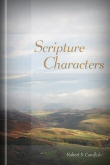
In Scripture Characters, Robert S. Candlish expounds on the biographies of Joseph, Eli, Ahab, Jehoshaphat, Herod, Pilate, Peter, John, and the family at Bethany in 19 powerful essays.
Each chapter teaches us lessons of wisdom and piety.
—The Baptist Magazine
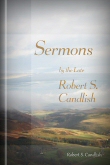
This volume contains 18 sermons by Robert S. Candlish, as well as a brief biographical sketch. Sermons include "Sowers and Reapers," Candlish’s address on John 4:37, his sermon on 1 Timothy 2:5 titled "The Man Christ Jesus," and his sermon on 2 Corinthians 11:3 "The Simplicity that is in Christ," along with 15 other timeless discourses.
Clear and cogent presentations of truth; evangelic in the themes and expositions, practical, yet with a doctrinal basis that is distinct though not obtrusive nor dogmatic.
—New Englander
They are excellent examples of a high order of sacred eloquence. . . .
—The Presbyterian Quarterly and Princeton Review
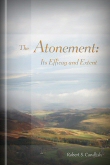
Robert S. Candlish divides his in-depth study of atonement into two parts: "The Question Viewed in Its Relation to Human Systems and the Method of Scriptural Proof," and "The Question Viewed in Its Practical Relation to the Gospel Call and the Acceptance of It by Faith."
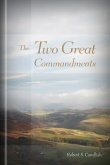
Robert S. Candlish divides this classic work on the two great commandments—love the Lord thy God with all thy heart, and love thy neighbor as thyself—into three parts:
- The Christian in Relation to God
- The Christian in His Relation to His Fellow-Christians, the Church, or Collective Body of Believers
- The Christian in His Relation to a Hostile World
His clear, vigorous style, his acute logic, his knowledge of men and things, and his sound, shrewd sense, fit him to deal most successfully with such a portion of Scripture as this. We must especially recognize the very able manner in which he shows, throughout the volume, that scriptural morality has its roots in scriptural theology. We refer our readers to the work itself, assuring them that they will find in it sound theology and high-toned morality clearly expounded and vigorously enforced.
—The Baptist Magazine
The exposition manifests that thorough study of the text, which was to be anticipated from so eminent a theologian; while the general arrangement of the matter, and the varied application of the passages, show a high degree of ingenuity and fertility of the mind. Weighty thoughts are often impressed by stirring and eloquent appeals.
—American Presbyterian Review
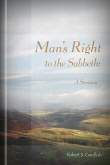
This sermon concerning the Sabbath was first preached in Marylebone Presbyterian Church in London. Robert S. Candlish then revised and extended it, adding an extensive argument pleading for the legislative protection of the Sabbath.
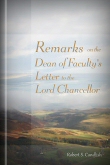
Remarks on the Dean of Faculty's Letter to the Lord Chancellor
- Author: Robert S. Candlish
- Publisher: Johnstone & Hunter
- Publication Date: 1839
- Pages: 48
In this succinct argument, Robert S. Candlish states his opinions on the claims of the Church of Scotland in regard to its jurisdiction and the proposed changes in its polity as discussed in the General Assembly of 1839. The controversy surrounding the relationship between the Church of Scotland's independence and the civil law of Scotland would lead to the Disruption of 1843, when a large portion of the Church broke away to form the Free Church of Scotland.
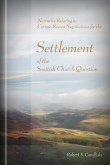
This short volume reflects Robert S. Candlish's views of the Church of Scotland's General Assembly of 1840 and the doctrinal and ecclesiastical principles involved. The controversy surrounding the relationship between the Church of Scotland's independence and the civil law of Scotland would lead to the Disruption of 1843, when a large portion of the Church broke away to form the Free Church of Scotland.
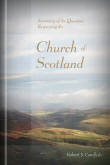
A debate in the Church of Scotland's 1840 General Assembly erupted over the process by which a minister is inducted to a parish. Robert S. Candlish provides a summary of the debate and an exposition of the various views involved.
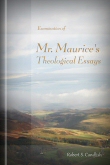
In 1853 Frederick Denison Maurice published Theological Essays, a book advocating for Christian Socialism. In Examination of Mr. Maurice's Theological Essays, Candlish debates Maurice's ideas on charity, sin, atonement, the incarnation, and more.
We value Dr. Candlish's Examination highly, as a fair uncovering of the opinions taught by Mr. Maurice, tracing them to their origin, explaining their meaning, unraveling their fallacies, and exposing their tendency to undermine both the teachings of the sacred writers and the conviction in men's minds of the specialty of their mission, and of the authority by which they spoke and wrote.
—The Eclectic Review
If anyone wishes to understand the character and tendency of Mr. Maurice's theological teaching, he can not better attain his object than by reading this work.
—The Protestant Episcopal Quarterly Review
This is one of the most massive and satisfying theological works we have read for many a day.
—The Evangelical Magazine and Missionary Chronicle
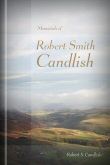
Drawing from Robert S. Candlish’s published writings, extant manuscripts, correspondence, and personal memories, biographer William Wilson has encapsulated the life and work of one of Scotland's most gifted preachers and theologians. From his early days in Glasgow, to becoming a leading voice in the Great Disruption of 1843, and to his university days as a professor and mentor, Wilson provides a full portrait of Candlish's life.
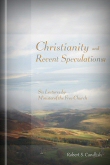
This volume, edited and introduced by Robert S. Candlish, contains six lectures from prominent ministers of the Free Church of Scotland. The lectures are by Thomas Smith, Robert Rainy, William G. Blaickie, Andrew Chrichton, John Duns, and Candlish. Topics covered include the Bible and science, miracles, spiritual Christianity in relation to secular progress, prayer and natural law, the Sabbath, and more.
In these lectures Christian truth is set forth with superior ability and a clear appreciation of the points to be aimed at by the lecturers.
—London Quarterly Review
These lectures were delivered in Free St. Georg's, Edinburgh, on Sunday evenings, to very crowded audiences, attracted by both the ability of the preachers and the popular interest of the themes discussed.
—British Quarterly Review

Robert Smith Candlish (1806–1873) was born in Edinburgh, Scotland, and grew up in Glasgow. After receiving his license to preach, Candlish served as an assistant pastor at several churches before becoming the minister at the large parish of St. George, Edinburgh. In 1839 he delivered his first Assembly speech that placed him at the forefront of the debate over the spiritual independence of the Church. He became one of the leading voices in the Great Disruption of 1843, when a large number of churches withdrew from the Church of Scotland and formed the Free Church of Scotland.
In 1841 he received his Doctor of Divinity from Princeton Theological Seminary, and succeeded Thomas Chalmers in the chair of divinity in the New College, Edinburgh. His other works include Life in a Risen Saviour, the two-volume Book of Genesis, The First of John Expounded in a Series of Lectures, and Studies in Genesis.
Reviews
7 ratings
Allan Story
5/5/2017
AeliusCicero
4/15/2014

Larry Proffitt (I
11/13/2013

Caleb Allen
10/12/2013

RevSarge
8/5/2013
Phil Niebergall
7/30/2013

James Candlish
3/3/2013
As a descendant of Robert, I have been thrilled to read his works, and to teach my family what our ancestor taught. Jim Candlish